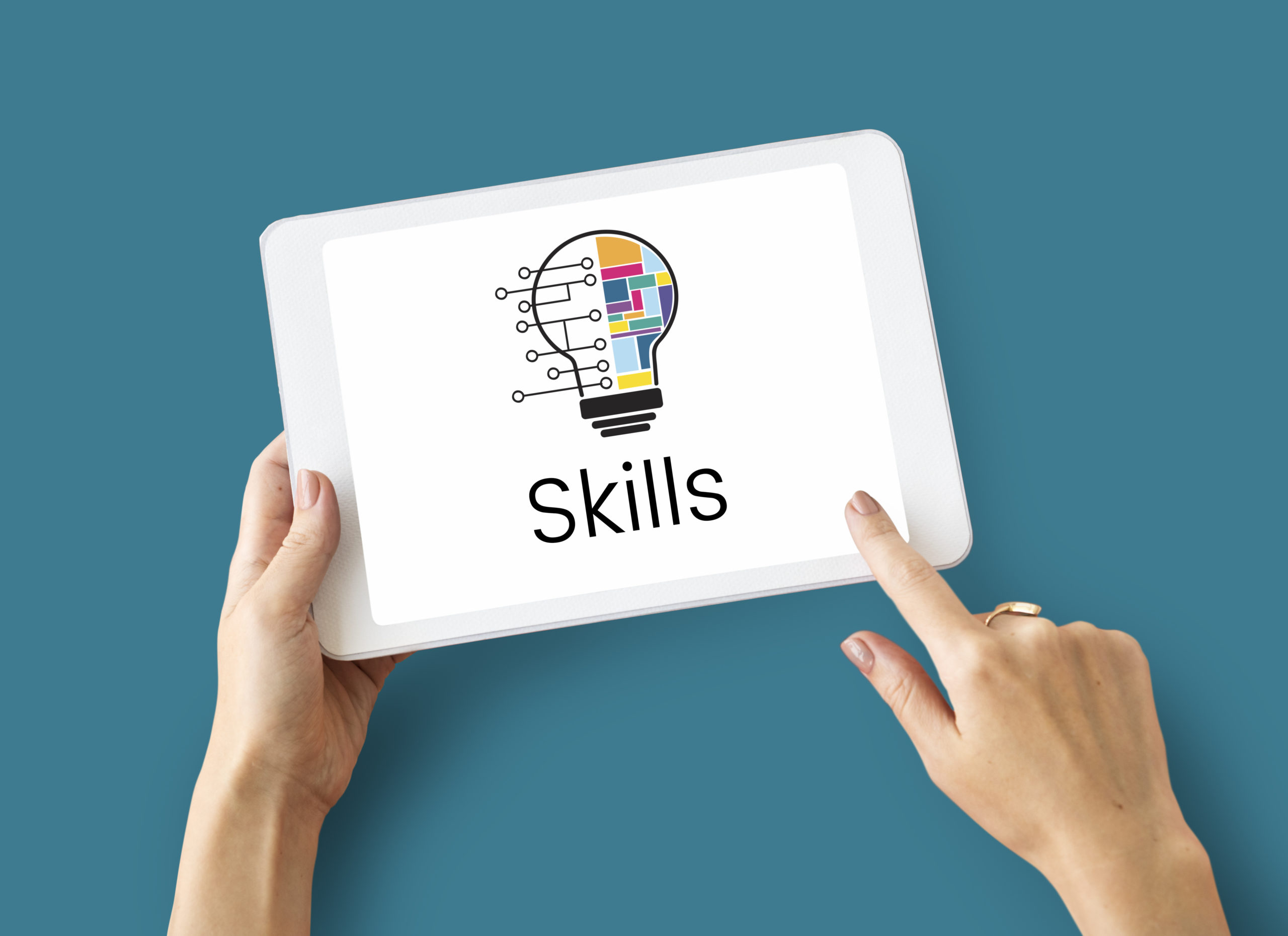4 KEY SOFT SKILLS THAT ARE HIGHLY RELEVANT FOR YOUR CAREER SUCCESS
In today’s competitive job market, having technical skills alone is not enough to achieve success.
Employers are increasingly looking for candidates who possess a range of soft skills that demonstrate their ability to communicate, collaborate, and adapt in a fast-paced and ever-changing work environment. But what exactly are these soft skills, and how can you develop them?
In this blog post, we’ll explore four key soft skills that are essential for career success, and provide tips and strategies for improving your proficiency in them. Whether you’re just starting out in your career or looking to advance to the next level, mastering these soft skills can help you stand out from the competition and achieve your professional goals.
What Are Soft Skills?

Soft skills are a set of personal attributes and traits that enable individuals to effectively communicate, interact, and work with others in a professional environment. These skills are often referred to as interpersonal skills and include the ability to listen, communicate effectively, work collaboratively, empathize with others, adapt to change, and solve problems creatively.
ALSO READ: The power of Chat GPT for businesses in 2023
Types Of Soft Skills Relevant To Career Success
1. Communication Skills
Effective communication involves the art of exchanging information, ideas, thoughts, opinions, knowledge, and data with clarity and purpose, ensuring that the message is received and understood.
It is a crucial process that requires both parties to actively participate and engage in the conversation to achieve successful communication. By effectively communicating, individuals can avoid misunderstandings, and conflicts, and achieve mutual understanding, ultimately leading to improved relationships and productivity.
Benefits Of Good Communication Skills In The Workplace
Enhances Team Loyalty – When business leaders communicate thoughtfully with their team members, rather than simply overseeing them from a distance, it promotes greater loyalty among those team members. As a result, they feel more appreciated and valued, which in turn leads to higher job satisfaction and increased loyalty to the company.
Enhances Team Trust – When leaders set the standard for communication in a company, it promotes trust among team members. This, in turn, encourages collaboration and teamwork, leading to a positive work environment. A trusting work environment thrives when colleagues communicate openly.
Enhances Productivity – Productivity is possible through engaged team members who understand their roles and responsibilities well. Unengaged team members who lack comprehension may become frustrated and less productive.
Providing readily available and effectively presented information can enhance the efficiency of team members in performing their responsibilities. Therefore, it is important for team members to be engaged and well-informed.
Enhances Client Relationships – Effective and positive communication is contagious, and when a company promotes it within its teams, successful interactions with customers become more likely.
To improve good communication skills;
- use simple and straightforward language
- ask questions and invite opinions
- take time to respond
- try to listen actively
- try to maintain eye contact
2. Time Management Skills
Time management is an essential skill that involves planning and consciously controlling the time spent on specific activities to work smarter, not harder. It’s a delicate balance between various tasks that helps increase efficiency and promotes a better work-life balance.
By improving your time management skills at work, you can boost your performance, achieve your desired goals with ease, and reduce stress levels. With effective strategies and a focused approach, you can accomplish more in less time and enjoy a more fulfilling personal and professional life.
Importance Of Time Management In The Workplace
Timely Delivery Of Work – Allocating a specific time period for each task can significantly enhance your productivity and ensure the timely completion of your work. This practice helps you effectively manage your workload and stay focused on the task at hand. This makes your brain 3become accustomed to the structure, making it easier to accomplish your activities within the desired time frame.
Improves Work Quality – As a committed team member, your work is expected to meet certain standards of quality. By effectively managing your time and prioritizing tasks, you can easily produce work of a higher standard. Prioritizing tasks allows you to concentrate on the most important ones, giving them the attention and focus they deserve. This ultimately leads to an improvement in the overall quality of your work.
Increased Productivity And Output – As a working professional, it’s essential to have effective time management skills to increase productivity and efficiency. These skills enable you to complete tasks efficiently and effectively without compromising on the quality of work. By prioritizing important tasks and managing time effectively, you can ensure that your productivity remains high, even when working on multiple tasks simultaneously.
Reduced Stress And Anxiety – As an employee, it is not unusual to feel overwhelmed by the amount of work that is often piled onto our plates. However, this can not only hinder productivity but also impact overall health.
The negative effects of excessive stress and hypertension can lead to serious health issues such as heart disease, depression, and obesity. Fortunately, there are ways to reduce the amount of unnecessary stress and tension. By acquiring the skills necessary to manage workload and prioritizing self-care, you can maintain a healthy work-life balance and promote overall well-being.
Here are some tips for prioritizing tasks and managing time effectively
- Make a to-do list: Write down all the tasks that need to be done and prioritize them based on their importance and urgency. You can use tools like Google Task or Mircosoft To Do,
- Use a calendar: Schedule your tasks and appointments on a calendar to help you stay organized and on track.
- Set goals: Define your long-term and short-term goals and break them down into smaller tasks. This will help you focus on what’s important and stay motivated.
- Focus on one task at a time: Avoid multitasking as it can reduce your productivity and increase stress. Instead, focus on one task at a time and complete it before moving on to the next.
- Learn to say no: Don’t take on more tasks than you can handle. Learn to say no to requests that don’t align with your priorities.
- Delegate tasks: If possible, delegate tasks to others to free up your time for more important tasks.
- Take breaks: Taking breaks can help you recharge and increase productivity. Take short breaks throughout the day to avoid burnout.
By implementing these tips, you can prioritize your tasks and manage your time effectively, leading to increased productivity and success.
ALSO READ: TOP 5 DIGITAL SKILLS REQUIRED FOR ENTREPRENEURSHIP IN NIGERIA
3. Teamwork And Collaboration Skills
Teamwork and collaboration skills are key to unlocking a team’s full potential. Working together as a team makes it easy to overcome challenges and proffer solutions to problems more effectively. This helps to bring about greater success.
Through collaboration, your team can also improve communication and build a culture of trust and respect.
Common challenges one can face working in a team are;
- Lack of trust among team members
- Poor communication
- Interpersonal conflict
- Poor workplace conditions
- Ineffective team meetings
Tips for building and maintaining an effective team
Make clear vision and purpose – Your team should set out to accomplish specific goals that align with your company’s overall mission. Your aim is to deliver exceptional results that exceed your client’s expectations while contributing to the growth and success of your organization. To achieve this, each team member should play a critical role in contributing their unique skills and expertise towards the collective goal.
Set objectives and expectations – Setting goals for your team can be a challenging task, but it is a crucial step towards success. Without a clear direction, your team may feel lost. Even if your team is diverse and open-minded, it is important to set expectations and establish ground rules. This will help your team understand the type of environment and company culture you aim to maintain. By doing so, you can avoid potential confrontations and conflicts that may arise due to misunderstandings or differing expectations.
Rekindle relationships – To create a seamless work environment, fostering positive relationships within your team is crucial. Treating your colleagues with respect and without prejudice is the foundation of building strong connections and cultivating a high-performing, successful team.
CHECK: Best Soft Skills Training online
4. Problem-solving And Critical Thinking Skills
Employers value candidates who possess strong problem-solving skills because it demonstrates a broad range of competencies, such as logical thinking, creativity, resilience, imagination, lateral thinking, and determination. These skills are crucial not only for your professional success but also for your personal growth. By showcasing your ability to solve complex problems, you demonstrate your potential to be a valuable asset to any organization.
Common problem-solving techniques
To solve problems effectively, it’s important not to rush into finding a solution right away. Rapidly jumping to conclusions may lead to poor problem-solving outcomes, as the initial solution that comes to mind may not necessarily be the most suitable one. Here are the steps you should employ;
- Defining the actual problem
- Brainstorming as many solutions as possible
- Evaluate your options
- Create an implementation plan
- Evaluate the outcome of your solution
Soft skills vs. hard skills
In the professional world, skills can be divided into two categories – hard skills and soft skills. While both are necessary for success in any job, there are some key differences between the two.
Hard skills are technical abilities that are learned through education, training, or experience. They’re specific and measurable and often require a certain level of expertise. Examples of hard skills are coding, data analysis, and being fluent in a foreign language.
On the other hand, soft skills are non-technical abilities that are harder to quantify, such as communication, problem-solving, and teamwork. They’re essential to the smooth functioning of any organization because they contribute to the overall environment and culture.
Here’s a closer look at the differences between hard and soft skills:
Hard Skills
Hard skills are directly related to a particular job, industry, or function. They are typically acquired through formal education or training and are usually measurable. They are teachable and quantifiable, and often required to complete specific tasks or jobs.
ALSO READ: Finding the best digital marketing training in Lagos, Nigeria
Soft Skills
Soft skills are just as essential as hard skills, but they are more challenging to define and measure. They are a blend of people skills, social skills, communication skills, and personal attributes that enable you to interact effectively with others. They are often harder to quantify and evaluate, but they are a valuable addition to any resume.
In the end, the choice between focusing on hard or soft skills will depend on the particular job, industry, or function you are in. But keep in mind that it’s essential to have a balance between the two. Hard skills are important for performing specific tasks, but soft skills make it possible to collaborate and contribute successfully to an organization’s overall mission.
Conclusion
Soft skills are crucial for career success in today’s competitive job market. The aforementioned abilities can differentiate one candidate from another and open up new opportunities for professional growth and advancement. Therefore, it is important for individuals to develop and enhance their soft skills continually, as they are essential for achieving their long-term career goals and personal fulfillment.







